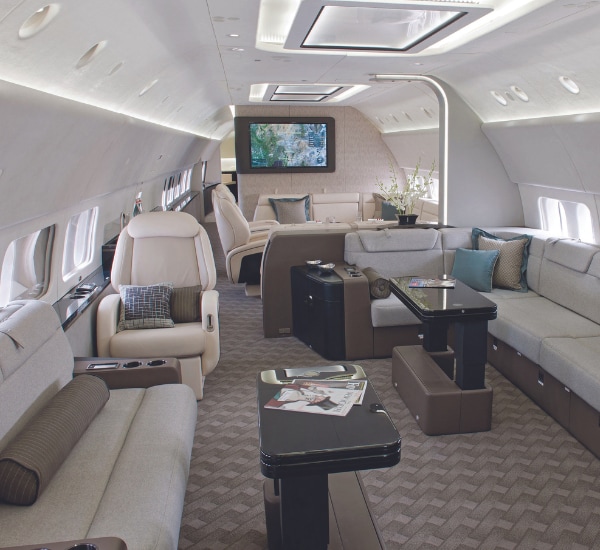
trudyfrankfurt
About trudyfrankfurt
The Rise of Private Jets: A Case Examine on Luxurious Journey And Its Implications

The private jet business has experienced exceptional progress over the past two decades, remodeling the way affluent individuals and companies method journey. This case study explores the evolution, benefits, and challenges of private jet travel, analyzing its impact on the luxurious market, the environment, and the future of aviation.
Historic Context
The concept of private air travel could be traced back to the early twentieth century, but it wasn’t until the put up-World War II era that the business began to take form. The introduction of business jets in the 1960s, such because the Learjet 23, marked a significant turning level, permitting companies and rich people to bypass commercial airline schedules and benefit from the convenience of flying on their own terms. The deregulation of the airline trade within the late 1970s further propelled the expansion of private aviation, making it extra accessible to a broader vary of shoppers.
Market Growth
In recent years, the private jet market has expanded dramatically, fueled by increasing world wealth and a growing demand for customized travel experiences. In line with the Federal Aviation Administration (FAA), the variety of private jets within the United States alone has surpassed 22,000, with a gradual annual development rate of roughly 3% during the last decade. The rise of charter companies and fractional ownership fashions has also democratized entry to private jets, allowing those who could not have the ability to afford outright possession to enjoy the advantages of private air travel.
Advantages of Private Jet Travel
- Time Effectivity: One of many most significant advantages of private jet travel is the time saved. Passengers can avoid long safety traces, flight delays, and layovers related to business flights. Private jets can access hundreds of airports worldwide, including smaller regional airports, allowing travelers to reach their destinations more shortly.
- Flexibility and Convenience: Private jets supply unparalleled flexibility in scheduling. Travelers can choose their departure instances and routes, accommodating final-minute changes and preferences. If you have any thoughts concerning where by and how to use www.privatejetscharter.review, you can get in touch with us at our own site. This level of comfort is especially helpful for enterprise executives who want to maximize productiveness.
- Privateness and Consolation: Private jets present a level of privacy that commercial flights can’t match. Passengers can conduct confidential meetings, loosen up in a cushty setting, and enjoy customized companies tailor-made to their preferences. The luxurious interiors of private jets usually feature spacious cabins, gourmet catering, and high-end amenities.
- Enhanced Safety: Within the wake of the COVID-19 pandemic, many travelers have turned to private jets as a safer various to industrial aviation. Private jets reduce exposure to large crowds and allow for managed environments, addressing health considerations associated with air journey.
The Environmental Impression
Regardless of the numerous advantages, the rise of private jets has raised concerns relating to their environmental impact. Private jets emit significantly more carbon dioxide per passenger compared to commercial flights, contributing to local weather change. Based on a report by the Worldwide Council on Clean Transportation, private jets produce about 14 occasions extra emissions per passenger mile than business airways.
In response to growing environmental consciousness, the private aviation business is exploring sustainable alternate options. Firms are investing in more gasoline-environment friendly aircraft, sustainable aviation fuels (SAF), and electric or hybrid propulsion systems. Initiatives just like the ”Fly Green” program purpose to offset carbon emissions by investments in renewable vitality tasks and reforestation efforts.
The Luxury Market and Private Jets
Private jets have become a symbol of wealth and status, interesting to high-net-worth people, celebrities, and company executives. The luxury travel market has seen a shift toward experiential choices, with private jet travel being a key part. Corporations equivalent to NetJets, VistaJet, and Wheels Up have capitalized on this trend, providing bespoke journey experiences that cater to the desires of affluent shoppers.
The rise of ”jet cards” and fractional possession has made private aviation more accessible, allowing shoppers to buy flight hours without the dedication of full ownership. This mannequin has attracted a brand new era of travelers who search the convenience of private air travel with out the associated prices of maintaining an aircraft.
Challenges Facing the Business
Despite its development, the private jet trade faces several challenges. Regulatory hurdles, safety issues, and fluctuating gasoline prices can influence operations and profitability. Additionally, the business should navigate the stability between luxury and sustainability, addressing the environmental issues related to private aviation.
The COVID-19 pandemic has additionally introduced new challenges, as travel restrictions and well being protocols have altered the panorama of air travel. While private jets have seen increased demand as a safer option, the industry should adapt to altering consumer preferences and expectations.
The way forward for Private Aviation
Trying ahead, the way forward for private aviation seems promising however requires adaptation to emerging trends. The combination of expertise, corresponding to advanced booking platforms and in-flight connectivity, will improve the customer expertise. Furthermore, the industry should proceed to prioritize sustainability, investing in innovative options to reduce its carbon footprint.
Because the world becomes more and more interconnected, private jet travel will likely remain an important component of the luxurious travel market. The industry’s skill to innovate and handle environmental considerations will determine its lengthy-time period viability and acceptance among a broader viewers.
Conclusion
The private jet business has advanced into a big participant in the luxury journey market, providing unparalleled comfort, flexibility, and consolation to its clientele. Nevertheless, it should confront pressing challenges related to sustainability and public perception. As affluent travelers seek customized experiences, the private aviation sector will need to adapt and innovate to meet the demands of the future whereas minimizing its environmental impression. The journey of private jets is a testament to the intersection of luxury, know-how, and sustainability, shaping the future of air travel for generations to come back.

No listing found.